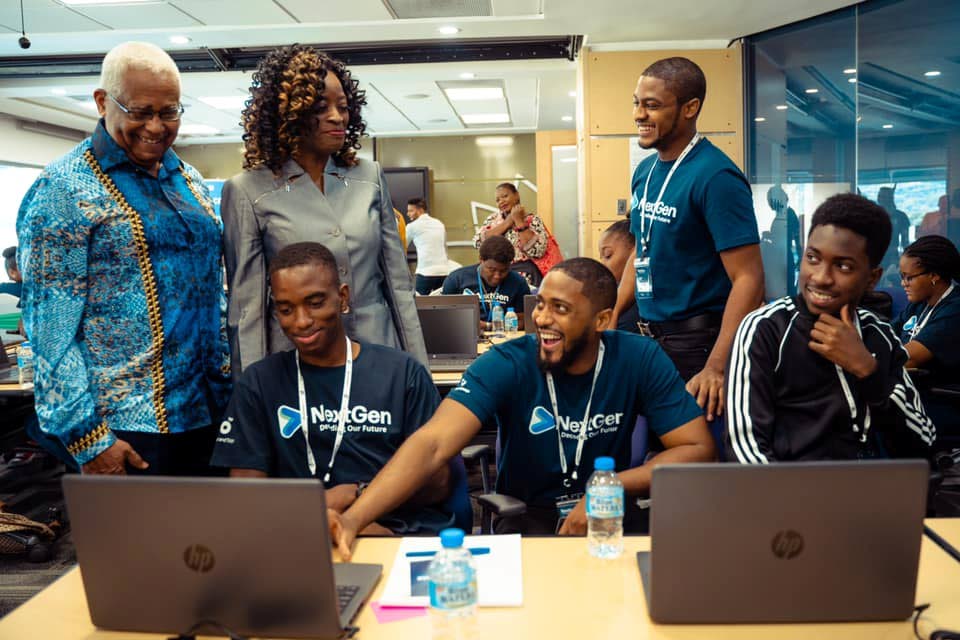Coding camp creates NextGen of TT innovators

You don't need to be a techie to learn about technology, as every job requires a level of tech savviness for this. Brothers Nicolas and Kyle Maloney want students to know that having a solid skill in technology will be a valuable asset for their career, regardless of what field they pursue.
The brothers are directors of Tech Beach Retreat, a tech convention hosted in Montego Bay every year. Coming out of the work they’ve done with Tech Beach, they hosted NextGen Coding Camp in August for teens in Trinidad for five days.
NextGen brought in citizens who studied in TT, and are now working in international tech companies such as Facebook, Google, Intel, Amazon and Goldman Sachs. They flew in six instructors and had eight instructors via Skype.
They partnered with BP to execute the project and hosted two camps with 30 students in Port of Spain and 32 students in Mayaro.
They were impressed with the quick adoption and willingness of the students to learn to build their first website and apps.
“Some of them came in on the first day not knowing what programming is, and by the last day they were building tools themselves. On the last day it was so hard to leave some of them. At that age they are so willing to learn. They are so willing to try and put effort in,” Nicolas said.
The brothers said they learnt as much from the students as the students learned from them, but the most eye-opening experience for them was the equalising power of education and opportunity for those in different socio-economic brackets.
They chose students for the camp in Port of Spain via an application process. Without asking what school the students attended, they chose the best applications, and got students from known high-performing schools such as CIC, QRC and St Joseph's Convent. The students from Mayaro, however, were chosen by BP.
Some of the Mayaro students did not have computers at home. Some had to drive for hours to get to the camp, and others did not know much about computers before the camp. Yet some of those students picked up the material and ended up building sites better than the Port of Spain group.

“They would drive two hours in the morning and they are sitting there, not distracted in any way, fully engaged. Just think what would happen if these kids had an ongoing opportunity.
“We’re thinking if we didn’t take the time to teach them the skills, they probably would never have had the time to learn. We were amazed we could make such a huge impact in their life. They were so thirsty for knowledge,” Nicolas said.
There’s a common misconception that to work in technology, one must be a techie. Many of the students at NextGen believed that, as they seemed hesitant at first to work in the coding camp. But over the five days, they became aware what a vital asset being able to build a website could be.
“The ecosystem for tech includes all kinds of skill sets. You need project managers, designers, copywriters, artists – you need everybody to participate and build,” Nicolas said.
In the Mayaro cohort, there were two girls, one an artist and the other a poet. Usually they would post their work on Facebook or Instagram. They asked their mothers why they were going to a tech camp, but at the end of the five days, they built their own website.
“They built their own corner of the internet, where it belongs to them. If they want to have ads on it, they are making all their money. So this was mind-blowing to them. Before, they would think,' I would never build websites, or build applications, it's not my thing. I am a writer.' But now they see it entirely differently,” Kyle said.
They said empowering the students with the ability to create technology and learn to build applications and websites meant the students could provide services to almost anybody. They could not only provide services to people in their own community, but become freelancers online and provide those services around the world.
“Now the ability to create stuff is pocketed in the hands of a very few, and that very few have a kind of god-like mentality, because they are like the best things. They want to feel they are the greatest. But if the whole island is full of best things, you is a nothing.
"That is what we are trying to do: make the whole place full of more people who could create and you could see innovations coming from every corner.”
NextGen will host another coding camp in December.


Comments
"Coding camp creates NextGen of TT innovators"